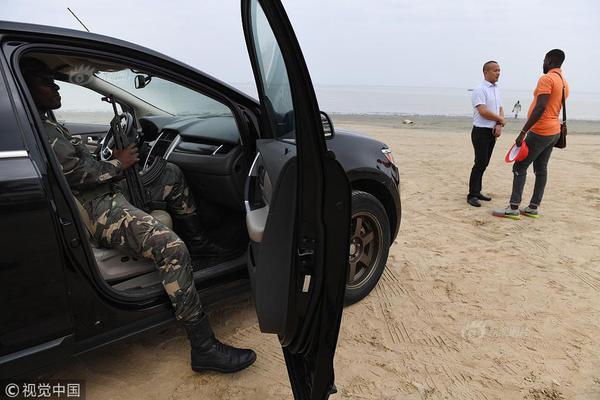【】
Welcome toSmall Humans, an ongoing series at Mashable that looks at how to take care of – and deal with – the kids in your life. Because Dr. Spock is nice and all, but it’s 2019 and we have the entire internet to contend with.
Legally mandated app usage is officially now a thing.
Say hello to coParenter, an app designed to facilitate the often-fraught dealings of two non-married or separated individuals trying to jointly raise a kid. The app, available for download in the App Store and on Google Play, officially launched Jan. 17 with the promise to both save parents money and keep them out of court.
SEE ALSO:Screen time can affect kids, but the data is hard to measure. Here's why.In those goals, at least according the company, the app succeeds. But that's not all it does. As the app's privacy policy notes, coParenter collects reams of data — data that can be turned over to courts — which can include everything from heated text exchanges to you and your ex-partner's location data. While custody cases regularly feature communication between parents as evidence, coParenter usage requires an opt-in to this expansive data sharing as a starting point. Usage of the app is frequently court-mandated, which provides users with a difficult choice: Give a judge on-demand access to your location and messaging data and pay for a monthly app on top of a data plan, or defy a judge's order and potentially risk visitation with your children.
CoParenter was created with the input of a retired judge, Sherrill A. Ellsworth – an influence that shows in the app's promotional language and design. The company even goes so far as to provide a "court kit" for those still in the profession looking to order the app's usage from the bench.
"[coParenter] sure does put a power in the hands of court officials they never had before."
"As Presiding Judge of one of the largest California counties, I saw the potential of CourtTech to fill a void," explains Ellsworth on the company description page. "I retired from the bench to focus on having a greater impact on today’s families by making our courts more accessible, effective, and efficient."
It is that very legal entanglement which frequently accompanies coParenter that has Jim Dempsey, the executive director of the Berkeley Center for Law & Technology, concerned.
"The biggest issue for me is how this augments the powers of a government agency (the courts in this case), potentially giving them access to a previously unimaginable amount of information," Dempsey explained over email. "[CoParenter is] not surreptitious (person are told they must use it), but it sure does put a power in the hands of court officials they never had before."
Dempsey went on to add that he sees this as part of a larger trend toward the forced electronic monitoring of individuals by the courts, though it's worth remembering that custody disputes are generally not criminal matters. And while Dempsey did find coParenter's privacy policy to be "clear and quite plainly written," that doesn't mean the terms themselves aren't expansive.
These are not purely academic concerns. Families are using the app. According to Eric Weiss, coParenter COO and co-founder, the app has been installed over 20,000 times (some of those presumably during the app's pilot period), and boasts approximately 5,000 monthly active users. Other similar apps – such as Coparently and Talking Parents – also exist.
Weiss confirmed to Mashable that approximately 70 percent of the app's users come from the courts.
"The results were astonishing," co-founder Jonathan Verk told Fast Company in January. "Judges consistently ordered (or recommended) the platform five times more than we originally anticipated."
That order comes with a price tag. After a 30-day trail period, users must pay either a $12.99 monthly fee or purchase the yearly $119.99 plan.
 An example court document, provided by coParenter for the benefit of judges, mandating the use of the app.Credit: screenshot / coparenter
An example court document, provided by coParenter for the benefit of judges, mandating the use of the app.Credit: screenshot / coparenterPart of the reason behind the app's successwith the judicial system may be that judges appreciate the app's promise to prevent small disputes from reaching the bench. Ellsworth certainly believes that to be the case.
"Judges have on average 7 minutes to hear each motion, whether that motion is related to whether a co-parent can force their ex to feed their child organic food (typically the answer is no), or whether that motion is to decide where that child should sleep tonight due to a credible allegation of child abuse," Ellsworth explained to Mashable. "We want to help courts focus on those substantive issue of health and welfare while empowering parents to make parenting decisions."
And, as explained by Weiss, coParenter really does make things simple for judges.
"By virtue of using the app, coParents agree that their messaging, activity and agreements made on the app can be shared," noted Weiss.
"An active judge, with both coParents in front of her, could tap into the app during a hearing to see the messaging and activity data," he told Mashable over email.
Ellsworth and her fellow cofounders are not alone in believing in the power of consumer tech to improve the court process for parents. Laura Wasser, Esq., is both the founder and CEO of "online divorce solution" It’s Over Easy and a lawyer with over 20 years experience in family law. She told Mashable via email that in acting as a legal record of parents' interactions, coParenter does everyone involved a huge favor.
"It is a net positive for parents and the legal system in that it is an effective portal for communication and allows for accurate and organized compilation of exchanges if necessary," she wrote. "In the vast majority of situations, coParenter allows for parents to communicate and resolve issues amicably and cost effectively."
 A GIF of the app.Credit: coparenter
A GIF of the app.Credit: coparenterAnd, according to Wasser, this could be genuinely helpful for parents slogging it out in court.
"If one party wants additional custodial time and his/her request is based on the fact that the other parent is frequently late or forgoes his/her custodial time," she posited, "the information exchanged and recorded on coParenter would be most helpful to submit as evidence."
But coParenter bills itself as more than just a tool for parental empowerment. As a press release from the company emphasizes, a big selling point is the app's so-called Intelligent Dispute Resolution (IDR) platform. The platform purportedly uses AI to analyze parents' conversations and flag potentially abusive behavior.
"One of the most obvious and simple uses [of AI] is with basic language filtering to help co-parents who may be in active conflict with each other to communicate more respectfully," explained Weiss. "If they are using the odd expletive or four-letter word in their communication, we give them a warning with the option to not drop that f-bomb which may come back and haunt them if they do end-up back in court."
 Don't hit send.Credit: coparenter
Don't hit send.Credit: coparenterWhen asked about privacy concerns, especially those relating to users' location data, Weiss emphasized that the company takes the matter seriously.
"We’re very careful about how GPS data is captured and shared because we only want to accomplish a specific task — to verify that a user was at a specific location at a specific time for a child exchange," he wrote to Mashable. "So, the Check-in feature is only a snapshot of a user’s location when they push the Check-in button."
Using almost any app these days comes with some form of privacy trade-off, and avoiding unnecessary legal intervention is a laudable endeavor. But while the goal is for this app to help avoid legal fights, it does so by requiring suspensions of the privacy rights of the individuals using it.
Is it worth it? The makers of coParenter are clearly banking on your answer – or your judge's answer – to that question being "yes." But it may not be a choice at all: Co-parents could legally be required to use this messaging app for years to come, with the court system able to look over their shoulders the whole time.
Read more great stories from Small Humans:
Think twice before putting your kid's photo on Facebook
Reminder: Smart toys are cute, cuddly, and full of security risks
Wearable sensor might help screen for anxiety, depression in kids
The skill skids need to avoid getting fooled by fake news
Featured Video For You
Report says popular apps are silently recording your screen
TopicsApps & SoftwareCybersecurityPrivacySmall HumansFamily & Parenting
相关文章

We asked linguists if Donald Trump speaks like that on purpose
Donald Trump may do a good "drunk uncle at Thanksgiving" impersonation at his rallies, but amid all2025-04-23
Review: The Willow breast pump is a giant, but expensive, leap forward
Just so you know, there's a newer review of the Generation 3 Willow breast pump. Read on for our rev2025-04-23
The 'absolute unit' UK museum found a cute lost bat, named him Merlin
The Museum of English Rural Life is already internet-famous because of its animal tweets. The thicc2025-04-23
11 best autofill texting games for when you're so bored you could cry
Predictive text is at best a time saver, and at worst a life destroyer. Most phones now have some fu2025-04-23
Olympics official on Rio's green diving pool: 'Chemistry is not an exact science'
The diving pool for the Summer Olympics mysteriously turned green this week in Rio de Janeiro, then2025-04-23
See what it's like to work in an Amazon warehouse with this game
It's no secret that working in Amazon fulfillment is hardly what you'd call a dream job.The dismal w2025-04-23

最新评论